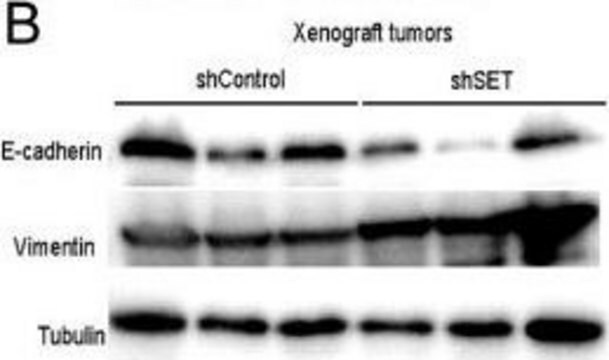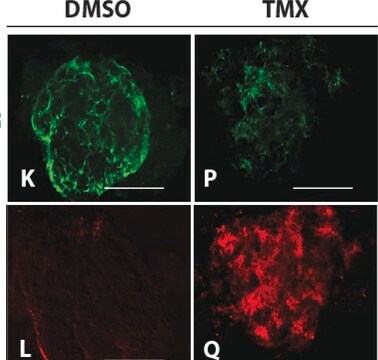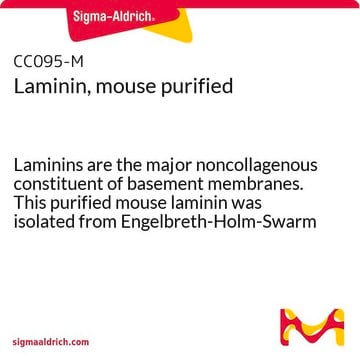AB1620
Anti-Vimentin Antibody
serum, Chemicon®
About This Item
Productos recomendados
biological source
goat
Quality Level
antibody form
serum
antibody product type
primary antibodies
clone
polyclonal
species reactivity
human
species reactivity (predicted by homology)
mammals
manufacturer/tradename
Chemicon®
technique(s)
immunocytochemistry: suitable
immunohistochemistry (formalin-fixed, paraffin-embedded sections): suitable
western blot: suitable
NCBI accession no.
UniProt accession no.
shipped in
dry ice
target post-translational modification
unmodified
Gene Information
human ... VIM(7431)
Specificity
Immunogen
Application
Immunocytochemistry
Western blot
Optimal working dilutions must be determined by end user.
Cell Structure
Cytoskeleton
Target description
Physical form
Storage and Stability
Analysis Note
Breast carcinoma tissue, Colon, Prostate, Tonsil, Tonsilar lymphoma, Uterus, Ureter
Other Notes
Legal Information
Disclaimer
¿No encuentra el producto adecuado?
Pruebe nuestro Herramienta de selección de productos.
Optional
Storage Class
10 - Combustible liquids
wgk_germany
WGK 1
flash_point_f
Not applicable
flash_point_c
Not applicable
Certificados de análisis (COA)
Busque Certificados de análisis (COA) introduciendo el número de lote del producto. Los números de lote se encuentran en la etiqueta del producto después de las palabras «Lot» o «Batch»
¿Ya tiene este producto?
Encuentre la documentación para los productos que ha comprado recientemente en la Biblioteca de documentos.
Protocolos
Step-by-step culture protocols for neural stem cell culture including NSC isolation, expansion, differentiation and characterization.
Step-by-step culture protocols for neural stem cell culture including NSC isolation, expansion, differentiation and characterization.
Step-by-step culture protocols for neural stem cell culture including NSC isolation, expansion, differentiation and characterization.
Step-by-step culture protocols for neural stem cell culture including NSC isolation, expansion, differentiation and characterization.
Nuestro equipo de científicos tiene experiencia en todas las áreas de investigación: Ciencias de la vida, Ciencia de los materiales, Síntesis química, Cromatografía, Analítica y muchas otras.
Póngase en contacto con el Servicio técnico








